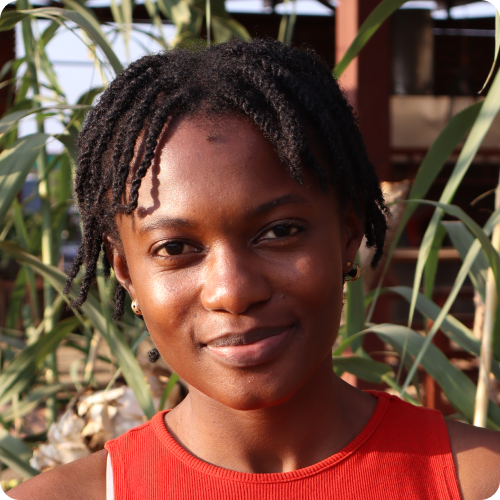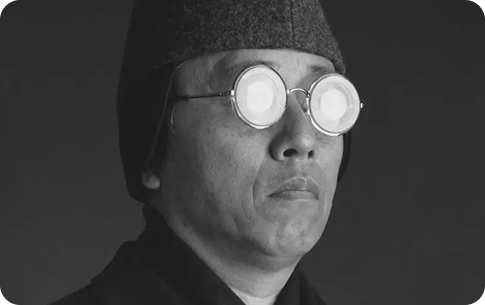
“Creatives are resigned to being a form of entertainment, and are not considered a voice of note when it comes to dealing with serious matters… people need to dig deep and take us and our work seriously…”
- Tinaye Mabara
Tinaye Mabara is a storyteller from Botswana.
“My form of art is communication through storytelling, crafting compelling stories on resilience, green enterprising, telling positive narratives about the capabilities of Africans to solve our own problems,” she explained.
She does this through creating video content for social media with young people in mind. She also facilitates art-based workshops on climate education for the youth. Originally from Zimbabwe, Mabara’s family migrated to Botswana when she was 11, as a result, she’s lived in Botswana for most of her life, “such that it’s become a big part of my identity.”
A core focus of Mabara’s work is environmental issues, a passion that arose since discovering Greenpeace during her gap year before she started university. “Initially I was going to start a band and make music about protecting the earth, after which I decided I wanted to understand environmental science deeply. I always thought people would respect an artist with a scientific qualification more and listen [to what they had to say].”
“When I was majoring in environmental science I realized that everything I was learning put me in somewhat of a gated community. I felt that information about environmental well-being needed to be packaged in more creative ways, liberated and shared outside of the traditional platforms in ways that are relatable and palatable to reach the people.”
For the Emerging Creatives Programme Mabara has pulled together a video looking at artists who make a living in the sustainability economy. “As far as I can remember, even during my undergraduate years, I have always been told that art and science cannot mix,” she said, “that you cannot be a creative as well as a scientist. Due to being part of the global community, thanks to social media, I know now that not only is it possible, but it’s also widely celebrated to use creative and critical skills to create ideas in effecting change. The piece I have created spotlights the colorful rebellion of sustainability-creatives within Botswana, who are yearning for sustainability, as well as building more cohesive communities for shared prosperity in the country.”
Even though civic space in Botswana is obstructed, Mabara shares that she is, fortunately, able to express herself freely. However, she believes that the creative industry needs more support and buy-in from stakeholders, government, and key players within the civic space itself, especially as creation can be a strong support for advocacy. “In my experience, creatives are not taken seriously in Botswana, even when they have the required formal education within their field or parallel to it. Creatives are resigned to being a form of entertainment and are not considered a voice of note when it comes to dealing with serious matters. So, while their expressions are not heavily censored, said expressions are also not considered integral to addressing social ills.”
Mabara continued: “People need to dig deep and take us, and our work, seriously. This looks like giving us a seat at the table, showing up when we have events, interacting with our work online because engagement goes a long way, and paying for our work. The end game would be the ability to create something that resonates and connects people, but also being able to take care of ourselves.”
MENTOR: Alphi Sipho Mkwanazi | Content creator, MC and actor
WATCH THE VIDEO

Global Citizen’s Emerging Creatives Program provides a platform for emerging creatives in the Global South that are highlighting the need for open civic space worldwide. Through their art, they call for change, shine a light on social injustices, and advocate for the advancement of the Global Goals.
MEET THE MENTOR
Rakaya Esime Fetuga
POET
South African-born Simphiwe Molefe, uses his photography to show the impacts of energy issues in the country. His collection of images titled, Impilo Iyaqhubeka, translates to mean “life goes on” in isiZulu and looks at how every day members of his community cope with South Africa’s ongoing power crisis.
In 2023, South Africa’s civic space rating was downgraded from “narrowed,” to “obstructed” — the third worst rating a country can have. That’s why Molefe believes creatives like himself have a role to play in highlighting the effects of the failure of basic services such as the power crisis in South Africa.
